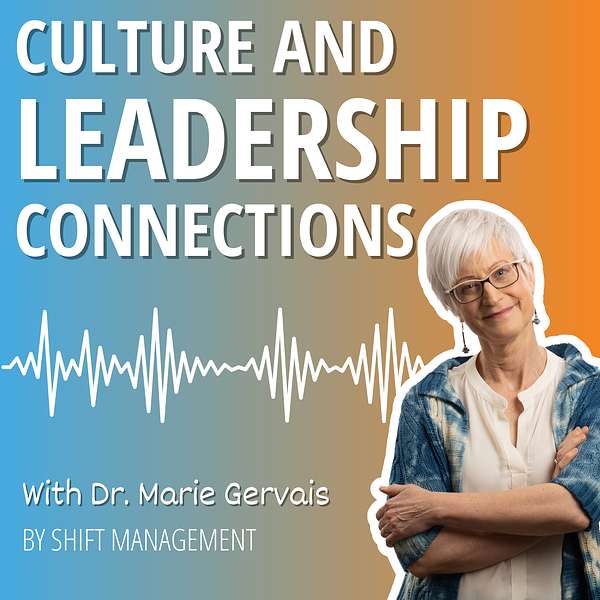
Culture and Leadership Connections Podcast
Culture and Leadership Connections Podcast: where culture, communication, and context meet at work. Discover what cultural influences have formed the careers of noteworthy leaders in a variety of professions, by exploring the groups that shaped who they are today. Learn about the collective context and experiences that affect their worldview, leadership style, workplace communication and behaviour.
Culture and Leadership Connections Podcast
Insights: What I Learned About Culture From 100+ Interviews
What I Learned About Culture From 100+ Interviews
Cultural insights from 100+ interviews
Quotes:
“When you don't have cultural awareness, you tend to take things personally when they are not personal. They're cultural.”
Episode Highlights:
In this episode, I delve into a rich tapestry of cultural insights drawn from over a hundred interviews on the Culture and Leadership Connections Podcast and my own intercultural experiences. Building upon our previous discussion on leadership, this episode focuses on unraveling some of the dynamics of culture.
Before we embark on this journey, let me offer a brief glimpse into my background. With a doctorate in culture and learning in the workplace, my personal narrative, shaped by immigrant roots and diverse professional experiences, serves as a lens through which I navigate the nuanced terrain of culture. From becoming fluent in French to changing my religion, I've undergone transformative changes that allowed me to see culture with more nuances.
I once had a conversation about traditional names with my late mother-in-law. She told me that parents should give their children “proper French” names. According to her, those proper traditional names were like the names she gave her own children. I asked her what names were given to her mother and siblings and their ancestors. It turned out that a so-called traditional name was dependent on the generation and didn’t carry over between generations. This was a revelation to my mother-in-law!
From the 100+ interviews about culture that I have had the privilege of hosting, I have noticed certain recurring themes and characteristics.
Insights About Cultural Awareness From The interviews:
- Awareness of one's culture deepens when you move away from it and experience culture shock as you become aware of differences between what you have experienced and what others experience.
- There are degrees of cultural flexibility and rigidity in all people. If people express cultural rigidity, it is best to accept that and move on to another topic where there is more willingness to explore.
- Third culture: In cultural studies, third culture refers to people who have moved a lot because of the military were displaced due to war or because of immigration. Now because of our interconnectedness, more and more people are showing characteristics of third culture in their view of the world. They feel more comfortable with people who have had broad experience rather than narrow experience.
- Those who have reflected consciously about the role of culture in their lives tend to be more credible than cultural competency experts in the field who have not reflected on their personal cultural selves.
Characteristics of People Who Reflect on Their Culture:
- They suspend judgment and hone the ability to bring it back to themselves and say, “Is this me or is this them or is it a little bit of both?”
- As we become more nuanced in cultural understanding, we start to see the person in the culture, and the culture in the person.
- Those who feel the most uncomfortable in a new cultural experience tend to adjust faster than those who feel comfortable because they try harder to make sense of their world. However, when people leave a cultural experience without being able to join cultural understandings, it's because they feel that their values have been compromised.
